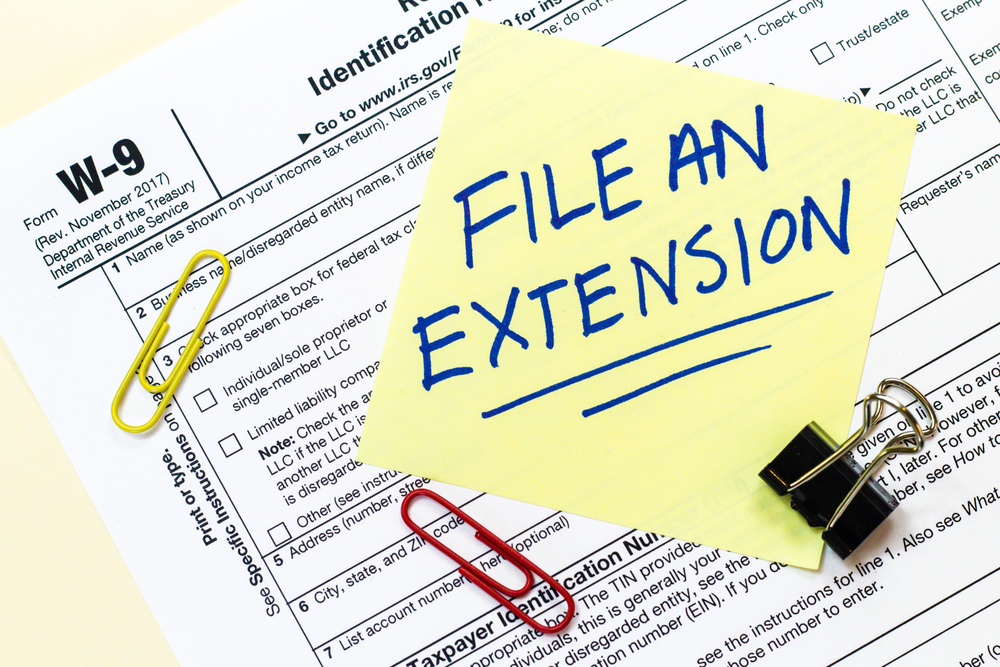Tax Extension versus Extension to Pay: What's the Difference?
- Apr 01, 2023
 The tax deadline is only about two weeks away, and many taxpayers are feeling the pressure. Whether you’re not yet prepared to file, or you simply can’t afford the tax bill you know you’re about to get, the impending tax deadline can cause a lot of stress. What can you do if you’re not ready for the tax deadline one way or the other? Can you get an extension to file your tax return? What about an extension on your payment? Are they different, or does one extension cover them both? Keep reading to find out more.
The tax deadline is only about two weeks away, and many taxpayers are feeling the pressure. Whether you’re not yet prepared to file, or you simply can’t afford the tax bill you know you’re about to get, the impending tax deadline can cause a lot of stress. What can you do if you’re not ready for the tax deadline one way or the other? Can you get an extension to file your tax return? What about an extension on your payment? Are they different, or does one extension cover them both? Keep reading to find out more.
Does an Extension Extend Both the Payment and Filing Deadline?
The short answer to this—which most people probably won’t want to hear—is that requesting a tax extension does not provide you with an extension on both filing and paying your taxes. Rather, you will need to request a separate kind of extension for each of these, and one is much easier to get than the other. Here’s what you need to know about the differences between a tax extension and an extension to pay your taxes.
Tax Extensions: An Extension to File Only
When the tax deadline rolls around, many taxpayers make the mistake of thinking that requesting an extension means they have six more months to file their return and six more months to pay. This is understandable, given that this request is generally referred to simply as a “tax extension,” which can be a bit misleading. However, that’s simply not true. In fact, the proper name for this request is an “application for automatic extension of time to file.” Hence, tax extensions provide an additional six months on filing your tax return only. Your tax bill is still due on the deadline day if you want to avoid late payment fees and interest.
This means that when you file your request for an extension, you’ll also need to provide a tax payment for the estimated amount you believe you will owe. Obviously, this is a less-than-perfect solution if your problem is being unable to afford your taxes. However, for those who simply don’t have all of their paperwork in order, but have a good idea of what they’re going to owe when they do file, a simple extension to file is all that’s needed to avoid late filing penalties.
Requesting an extension to file your tax return is actually quite easy. For most individuals, you’ll simply need to fill out and file Form 4868 to receive an automatic extension of time to file your income tax return. If you have special circumstances (e.g., you’re living abroad and expect to qualify for special tax treatment), you may need to file a different form. Businesses can also request an extension to file using either Form 7004 or Form 1138 (though, again, there are different forms for special circumstances, including for exempt organizations). Once you file the appropriate extension form, you’ll be automatically granted six additional months to file—and have a little breathing room to get all your documents in order.
Payment Extensions: What Are Your Options?
So, what if the problem you’re facing is that you know you won’t be able to afford your taxes by the time the tax deadline hits? What options are available to you? The first thing you should know is that you absolutely should not just avoid filing; this will only land you with additional fees and interest, and it creates a bad impression on the IRS when it comes to settling your taxes.
If you already know that you’re going to have a hard time paying your taxes, there are a few options available to you. The simplest one is to file Form 1127. This form requests an extension on your payment based on undue financial hardship. If you can’t afford your taxes because of some unexpected financial strain or major life changes, this is an ideal option to gain more time to pay your taxes. You’ll need to provide a full statement of your assets and liabilities, as well as an itemized list of your income and expenses for the past three months to prove that paying your taxes would cause unreasonable financial hardship for you. If approved, you can receive six additional months to pay your taxes.
If this option is not available to you, or if six months is not sufficient time for you to pay your taxes, there are other payment plans and settlement options available. Contact the IRS Advocates today to speak to one of our tax debt advocates and learn about which IRS tax repayment plan is right for your financial circumstances.
STOP THE IRS!
Settle for less & Protect your assets
Never Call the IRS without Speaking with our Pros First!